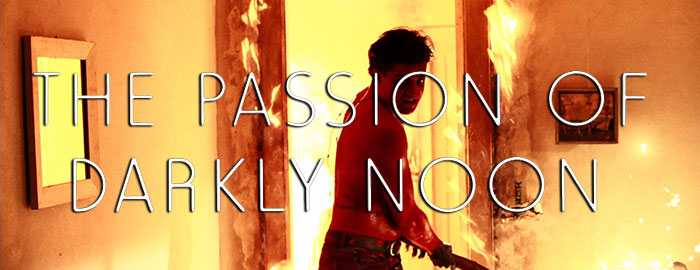
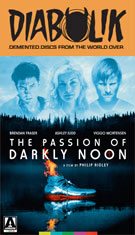

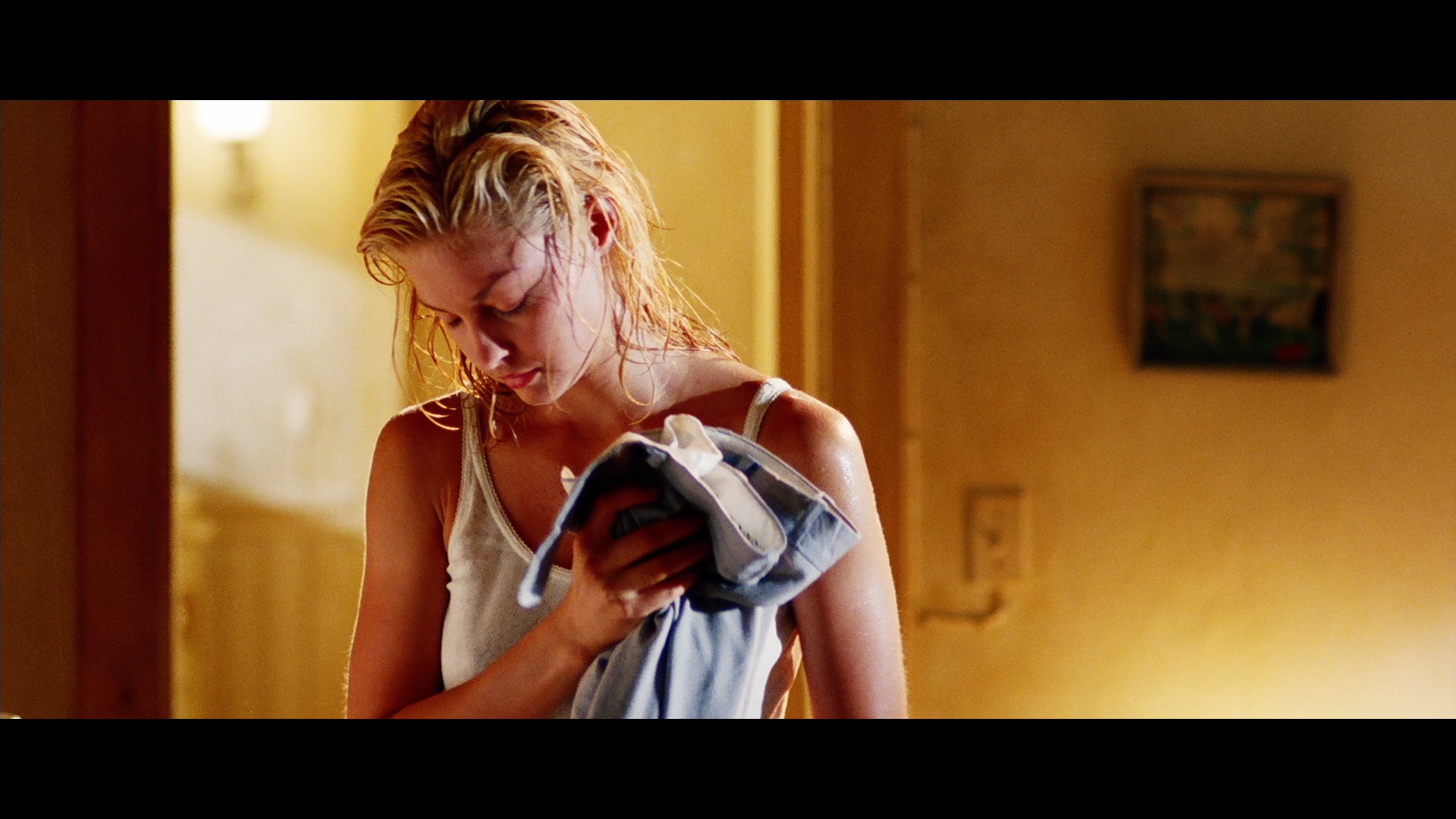 years after turning heads on
years after turning heads on 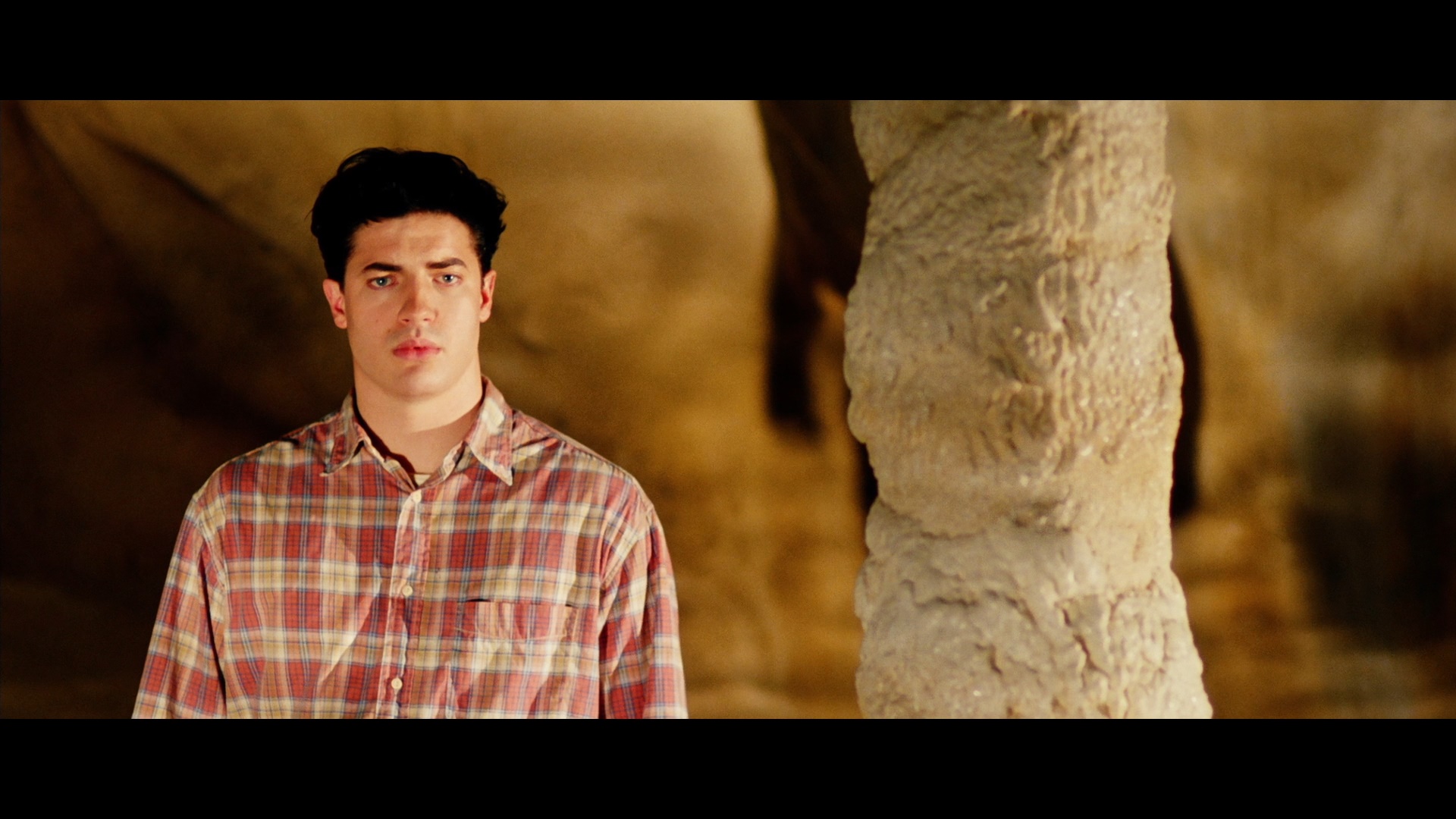 the art house circuit with his horror-tinged debut, The Reflecting Skin, British writer-director (and novelist) Philip Ridley finally followed it up with the equally unclassifiable and fascinating The Passion of Darkly Noon. Blessed with a bigger budget and higher profile cast, Ridley didn’t dilute any of the lush visual style and dark, idiosyncratic touches that had quickly come to define his style; however, the muted and frequently confused response to the film meant that we didn’t get another film from him until much later with Heartless in 2009. Part of the same group of cinematic madmen that also gave us the likes of Richard Stanley and Bernard Rose, Ridley remains a fascinating voice who should really be working far more often.
the art house circuit with his horror-tinged debut, The Reflecting Skin, British writer-director (and novelist) Philip Ridley finally followed it up with the equally unclassifiable and fascinating The Passion of Darkly Noon. Blessed with a bigger budget and higher profile cast, Ridley didn’t dilute any of the lush visual style and dark, idiosyncratic touches that had quickly come to define his style; however, the muted and frequently confused response to the film meant that we didn’t get another film from him until much later with Heartless in 2009. Part of the same group of cinematic madmen that also gave us the likes of Richard Stanley and Bernard Rose, Ridley remains a fascinating voice who should really be working far more often. 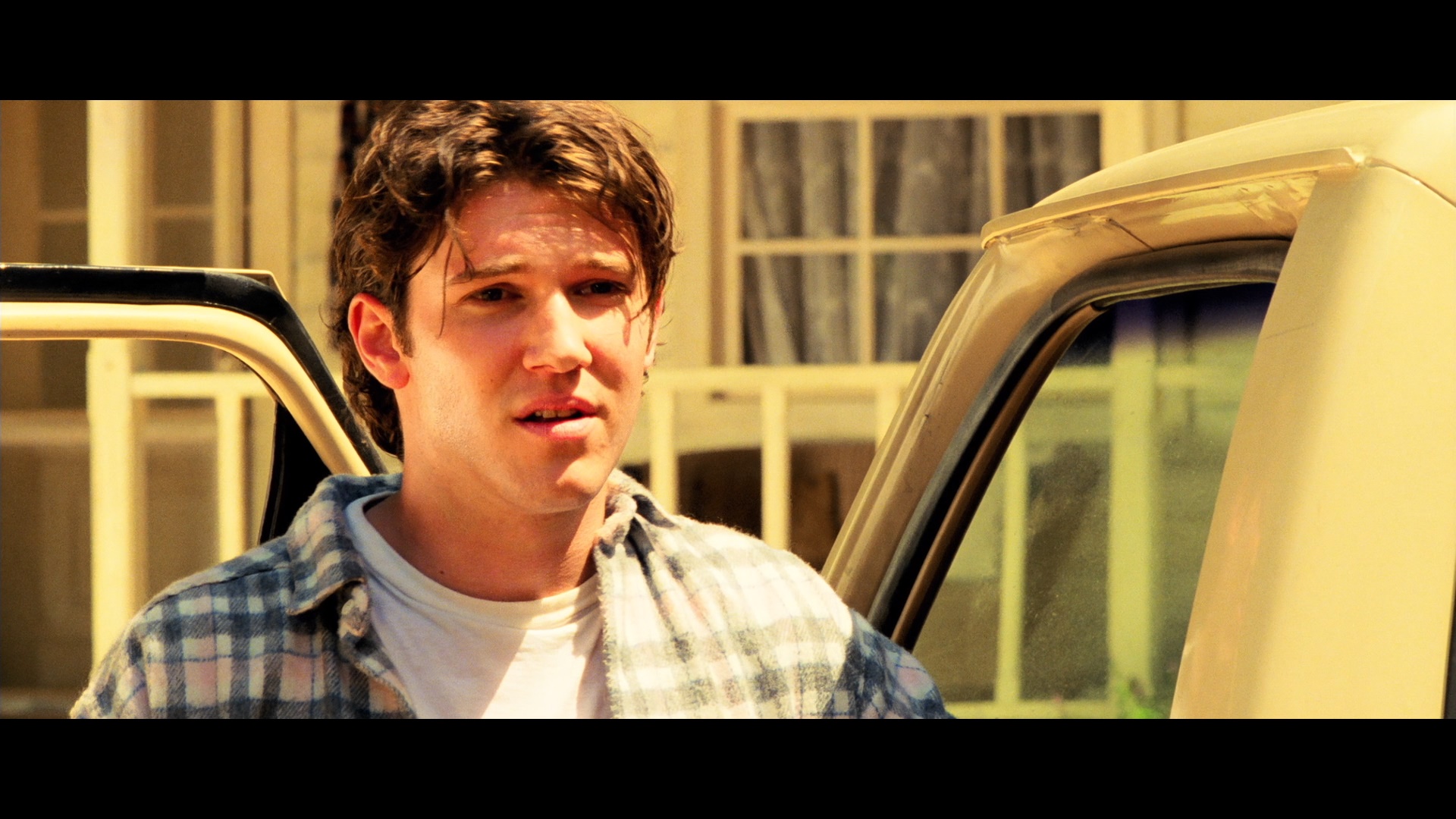 same era’s Twin Peaks. As an actor’s showcase this is solid material with Fraser showing off more range than he was usually permitted,
same era’s Twin Peaks. As an actor’s showcase this is solid material with Fraser showing off more range than he was usually permitted,  and as always Judd is charismatic and suitably intense when she needs to be. A strong music score by Nick Bicât is a fine successor to his career-best work on The Reflecting Skin, and the evocative German shooting locations are attractively handled in a stylized manner (complete with expansive use of the scope frame) including a bright look that frequently feels overloaded by blazing sunlight.
and as always Judd is charismatic and suitably intense when she needs to be. A strong music score by Nick Bicât is a fine successor to his career-best work on The Reflecting Skin, and the evocative German shooting locations are attractively handled in a stylized manner (complete with expansive use of the scope frame) including a bright look that frequently feels overloaded by blazing sunlight.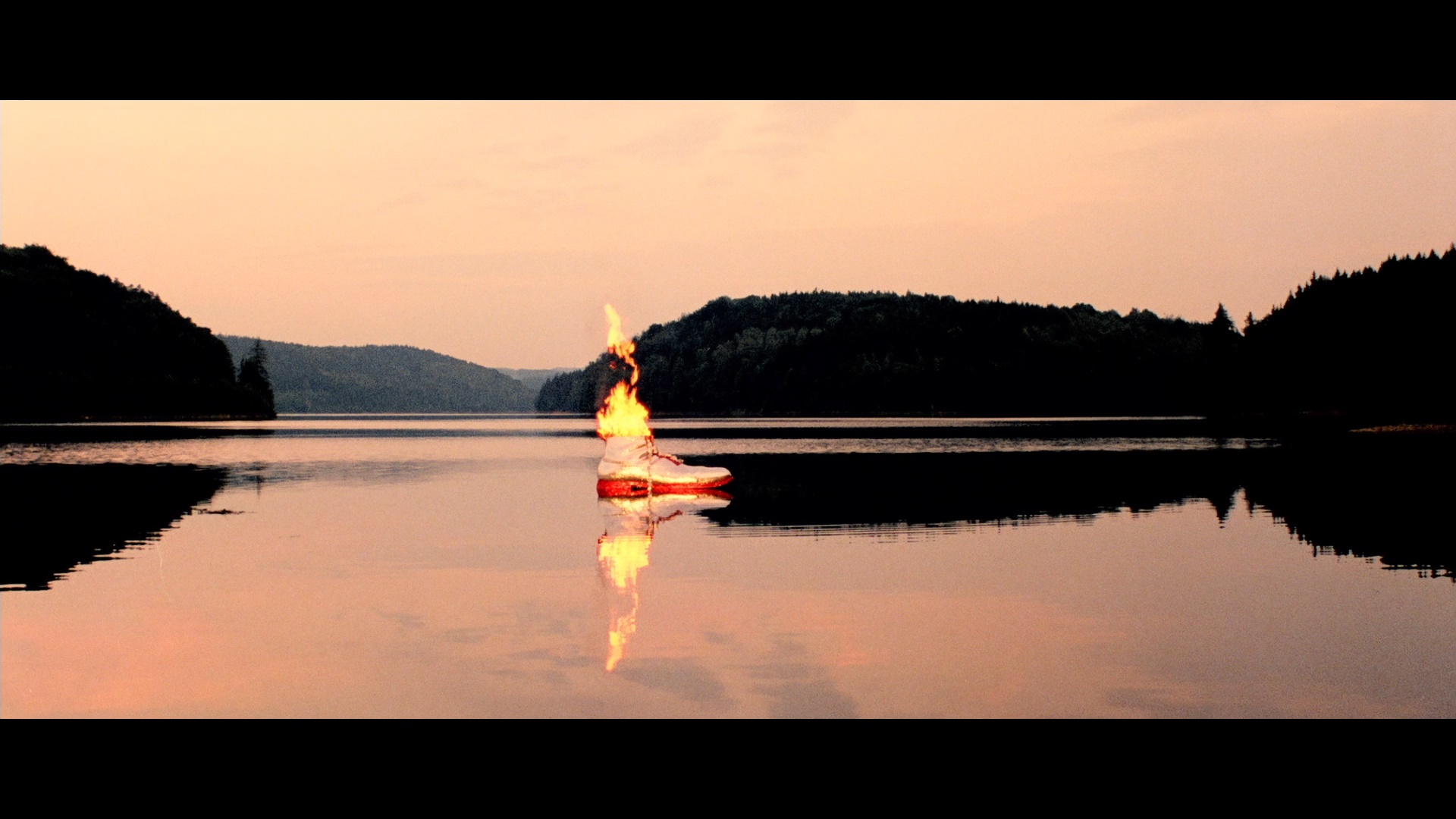 gets amped up even further here (for reasons expounded upon in his new commentary track included here), an aspect lost in the dire
gets amped up even further here (for reasons expounded upon in his new commentary track included here), an aspect lost in the dire 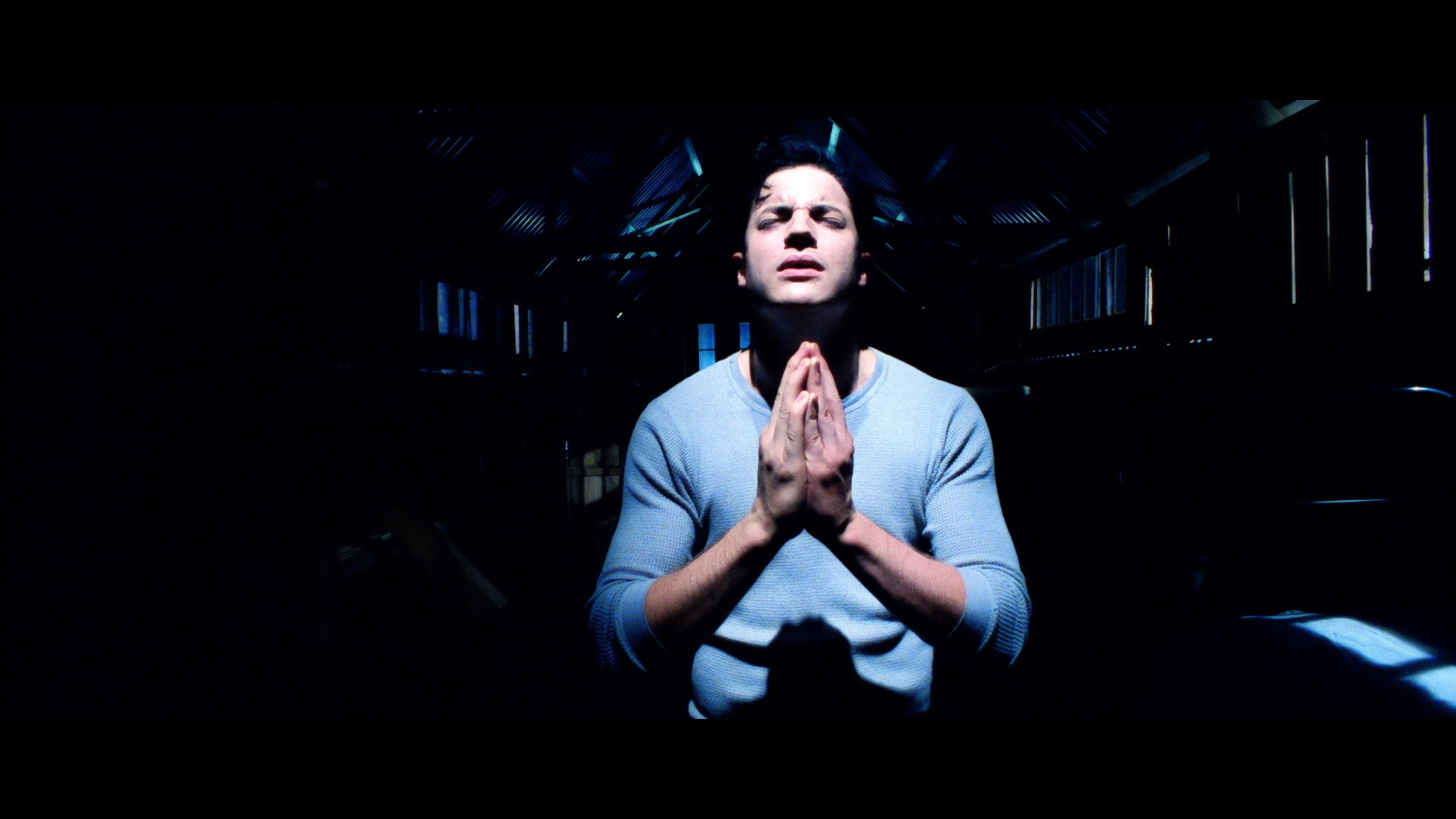 older transfers that tried to make this look more naturalistic. DTS-HD MA English audio options are presented in 5.1 and 2.0 options (with English SDH subtitles), and both sound very good with most of the audio fireworks going to the score and the bombastic sound effects of the final twenty minutes. The commentary is jam packed with good stuff as Ridley goes solo and chats about the casting process (with Fraser brought aboard on the strength of School Ties), the execution of that barbed wire scene, the nightmare of trying to shoot rippling water in a cave, and lots more. An isolated score track is also included and actually plays out the entire soundtrack plus the two songs and an assemblage of unused tracks, which makes it a nice advance on the digital version offered on the composer's site. In the video essay "American Dreams" (20m43s), James Flower approaches Ridley's first two films as an extension of his work in art school and his intention to depict an America as seen through his own English imagination with artistic ties to other directors like Andrei Tarkovsky, Charles Laughton, and Jean Cocteau. In "Eyes of Fire" (22m14s), cinematographer John de Borman talks about his sculpting background as a springboard to his film
older transfers that tried to make this look more naturalistic. DTS-HD MA English audio options are presented in 5.1 and 2.0 options (with English SDH subtitles), and both sound very good with most of the audio fireworks going to the score and the bombastic sound effects of the final twenty minutes. The commentary is jam packed with good stuff as Ridley goes solo and chats about the casting process (with Fraser brought aboard on the strength of School Ties), the execution of that barbed wire scene, the nightmare of trying to shoot rippling water in a cave, and lots more. An isolated score track is also included and actually plays out the entire soundtrack plus the two songs and an assemblage of unused tracks, which makes it a nice advance on the digital version offered on the composer's site. In the video essay "American Dreams" (20m43s), James Flower approaches Ridley's first two films as an extension of his work in art school and his intention to depict an America as seen through his own English imagination with artistic ties to other directors like Andrei Tarkovsky, Charles Laughton, and Jean Cocteau. In "Eyes of Fire" (22m14s), cinematographer John de Borman talks about his sculpting background as a springboard to his film 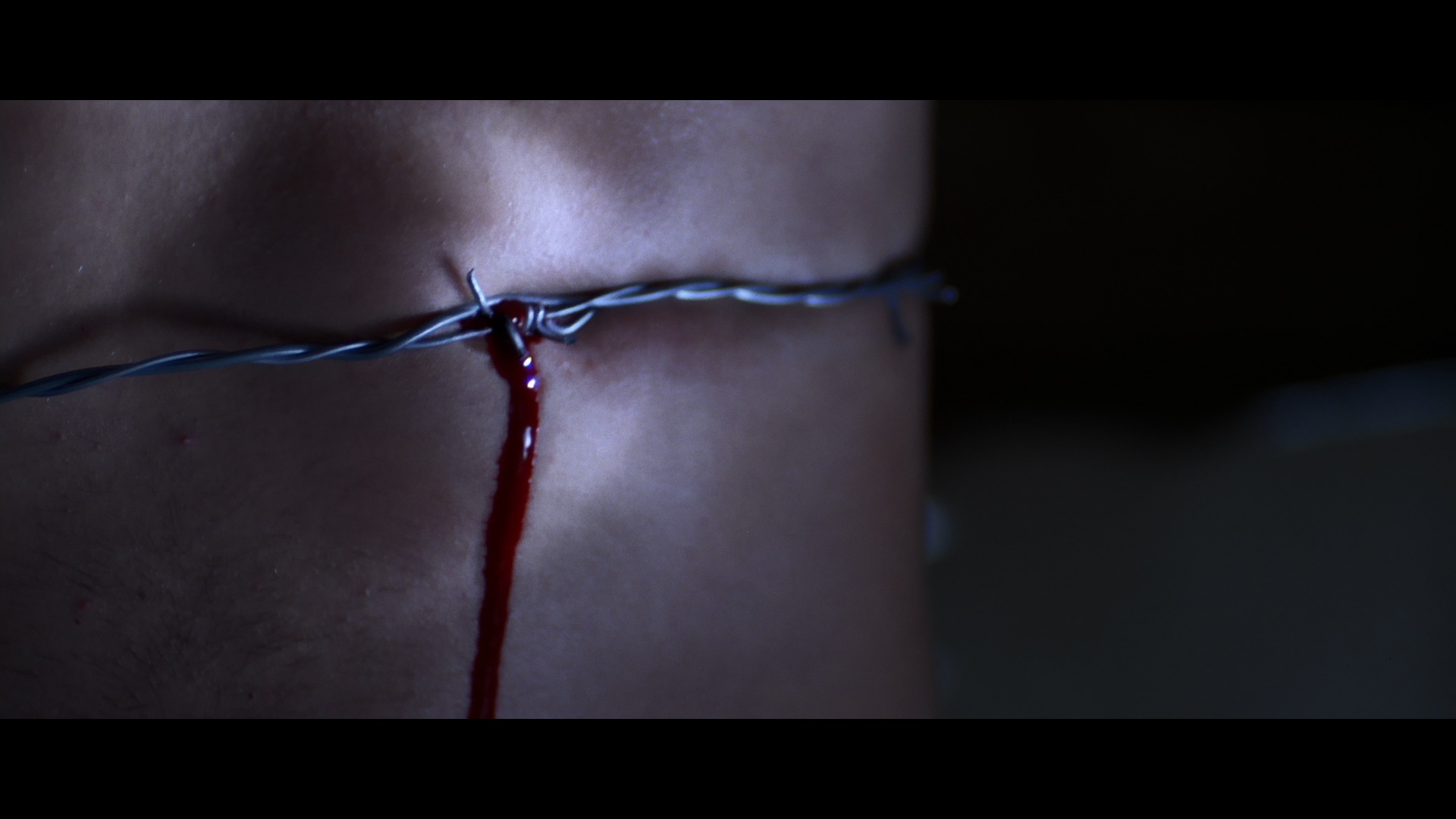 career and the artistic kinship he felt with the director on this film. Editor Les Healey appears in "Sharp Cuts" (16m8s) to chat about getting his start working on Ridley Scott films and coming up with novel approaches starting with his execution of a pivotal
career and the artistic kinship he felt with the director on this film. Editor Les Healey appears in "Sharp Cuts" (16m8s) to chat about getting his start working on Ridley Scott films and coming up with novel approaches starting with his execution of a pivotal 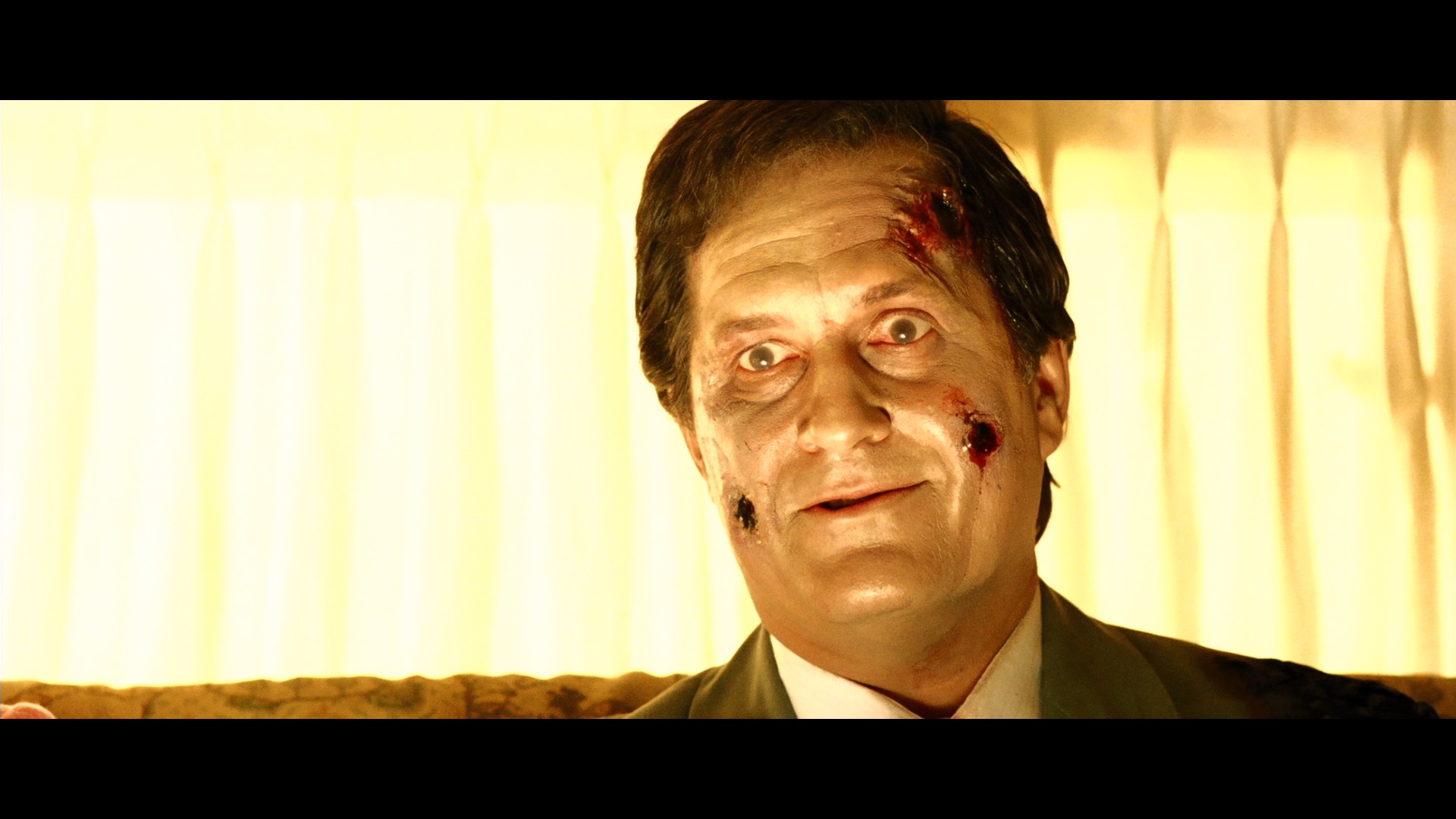 suicide scene. Then it's Bicât's turn in "Forest Songs" (19m43s) as he explains getting Ridley's attention on the basis of his early score for Wetherby and took a different approach to this film after Skin, particularly the crafting of the two songs and the involvement of P.J. Harvey. He also goes into his use of synthesizers here and the importance of writing the score before shooting started as it helped get the actors in the right mood. Carried over from the 2015 Soda Pictures Blu-ray of The Reflecting Skin is "Dreaming Darkly" (16m14s) with Ridley, Bicât, and Mortensen chatting about the inspiration for the film and the creation of this "adult fairy tale." Also included are three music demos written before the film to inspire the cast and crew, the theatrical trailer, and a 59-image gallery of promotional stills and international video artwork. The first pressing also comes with an insert booklet featuring liner notes by Alexandra Heller-Nicholas.
suicide scene. Then it's Bicât's turn in "Forest Songs" (19m43s) as he explains getting Ridley's attention on the basis of his early score for Wetherby and took a different approach to this film after Skin, particularly the crafting of the two songs and the involvement of P.J. Harvey. He also goes into his use of synthesizers here and the importance of writing the score before shooting started as it helped get the actors in the right mood. Carried over from the 2015 Soda Pictures Blu-ray of The Reflecting Skin is "Dreaming Darkly" (16m14s) with Ridley, Bicât, and Mortensen chatting about the inspiration for the film and the creation of this "adult fairy tale." Also included are three music demos written before the film to inspire the cast and crew, the theatrical trailer, and a 59-image gallery of promotional stills and international video artwork. The first pressing also comes with an insert booklet featuring liner notes by Alexandra Heller-Nicholas.![]()